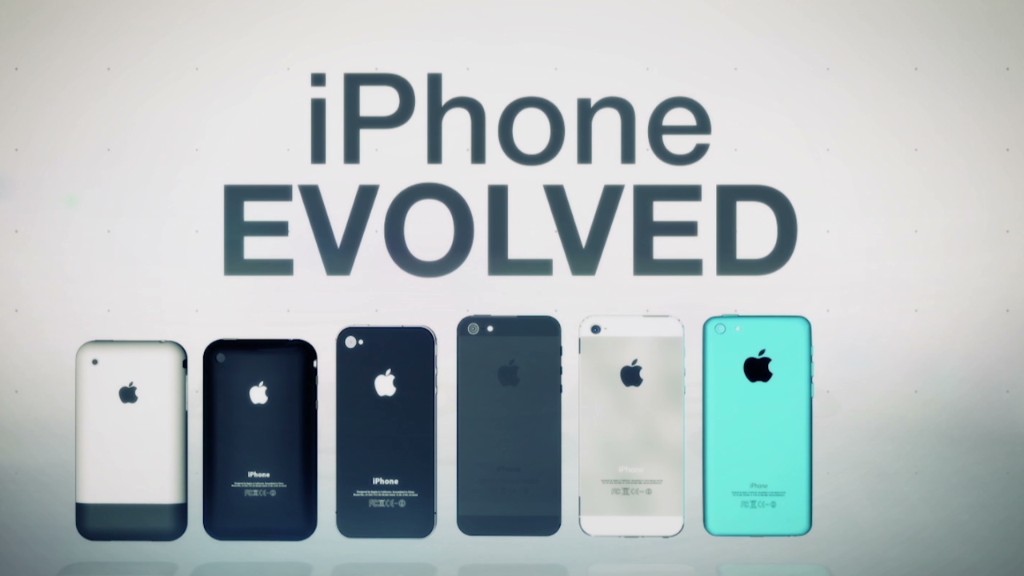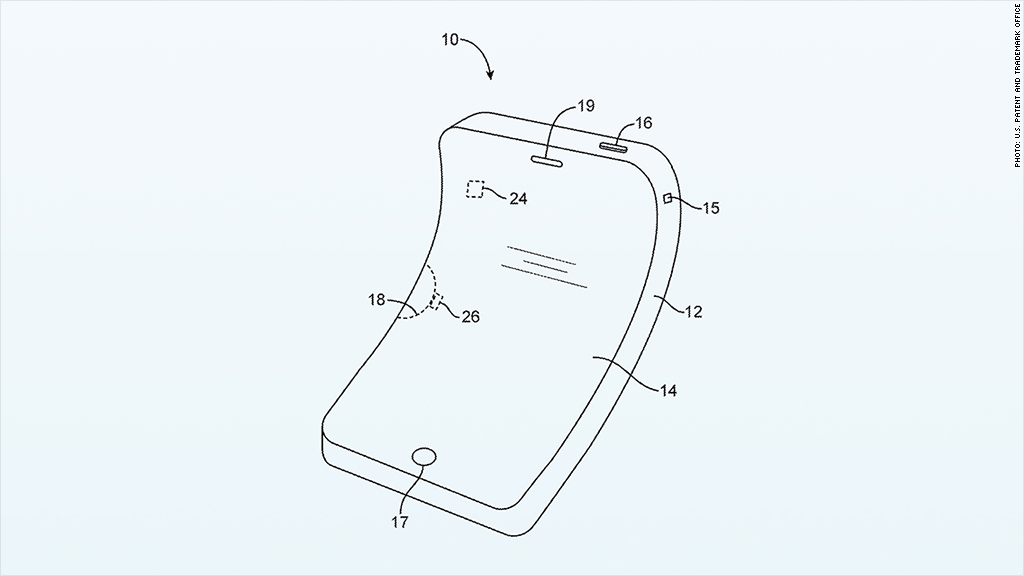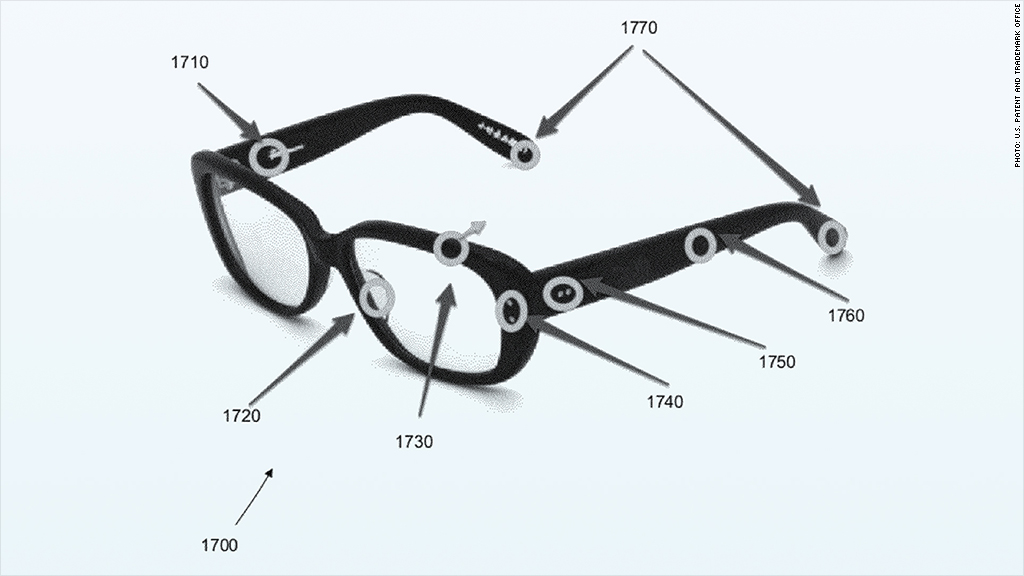
Apple now has a patent for a phone that is actually supposed to bend.
Among 28 patents Apple was granted Tuesday is one for a "flexible electronic device" and another for smart glasses technology that could challenge Google Glass.
The patents hint at what iGadgets Apple (AAPL) may have in the pipeline.
Flexible phone
Remember "bendgate," when social media was rocked by a handful of complaints about the new iPhone 6 Plus bending when crammed in people's pockets?
Apple said the issue was "extremely rare," but the episode demonstrated one instance of how a less-than-rigid phone or tablet could come in handy.
"Rigid electronic devices may be vulnerable to damage in the event of an impact such as a drop of the device on a hard surface," the patent reads. "It would therefore be desirable to be able to provide improved electronic devices."
Apple engineers have already put their minds to protecting the phone's most vulnerable parts, like the screen, from a fall. They've outlined technology that would allow phones to pivot mid-air.
The new patent includes two dozen drawings showing how a device -- say, an Apple (AAPL) iPhone -- could be warped and contorted. It could include flexible screens, flexible batteries and flexible circuit boards.

Some of their considerations: how the device would rest flat "in the absence of flexing forces;" how to make layers "slide and glide" over one another; that flexible materials for construction could include paper; and how to mount the central processing unit "to rigid central portion to protect CPU from damage due to flexing."
Smart glasses
Apple's next note-taking solution won't simply be an app with a virtual yellow pad.
Rather, it could be a system of data collection mounted on glasses. The patent calls it "Lifestream" and it is meant to collect "notes, recordings and annotation data elements."
Currently, note-taking "often cause(s) information overload and a user cannot efficiently organize the explosion of information content concerning the user's life, work and relationships," the patent reads. "(T)he present invention is directed to a system and method to collect unscripted data, add more meaning and use out of the data, and bind the data to services."

What type of data? The patent gives a few examples of what it could collect from a conversation, besides raw audio and video: facial recognition; "respiration patterns, ... pupil dilation, blinking, tears, redness."
And yes, it would also plug into Facebook (FB).
That sort of device could challenge Google (GOOG) Glass' dominance in the wearable glasses field.
The news of the patents was uncovered by the blog Patently Apple, which meticulously follows Apple's patent applications. The other patents approved Tuesday include a multi-point touch screen, automated audio mix equalization and improvements to various location-based features like push notifications.

